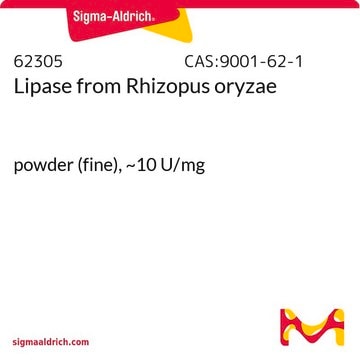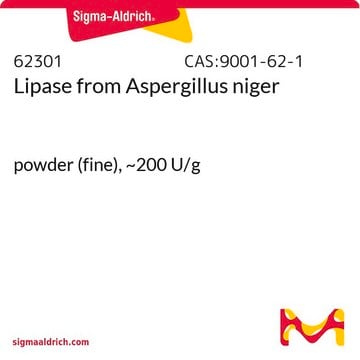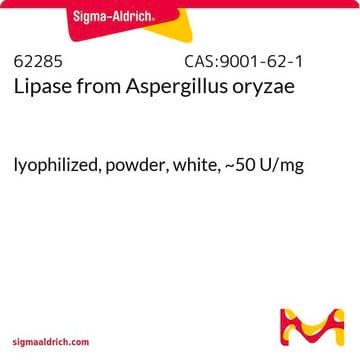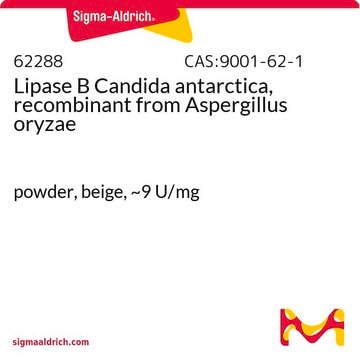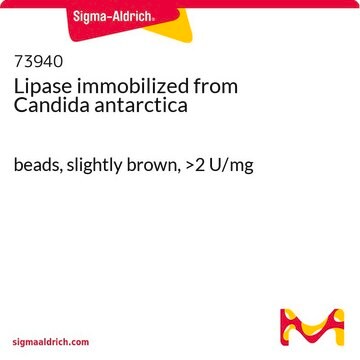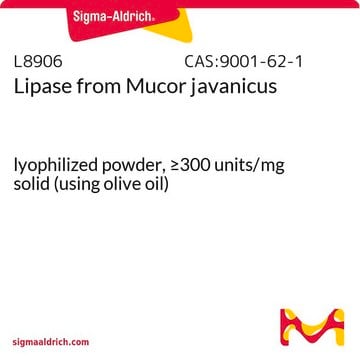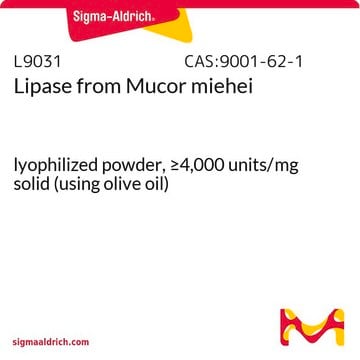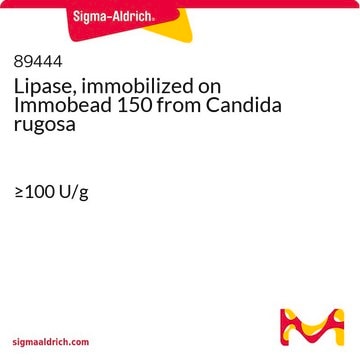80612
Lipase from Rhizopus oryzae
powder, light brown, ≥30 U/mg
Sinónimos:
Lipase F-AP 15
About This Item
Productos recomendados
biological source
fungus (Rhizopus oryzae)
form
powder
specific activity
≥30 U/mg
color
light brown
storage temp.
2-8°C
InChI
1S/C11H9N3O2.Na/c15-8-4-5-9(10(16)7-8)13-14-11-3-1-2-6-12-11;/h1-7,16H,(H,12,14);/q;+1/b13-9-;
InChI key
QWZUIMCIEOCSJF-CHHCPSLASA-N
General description
Application
- to replace rabbit gastric extract for infant in vitro digestion
- in the two-phase lipase-catalyzed system for the enzymatic preparation of biodiesel
- in the simulation of infant gastrointestinal digestion in vitro, focusing on the characteristics of emulsions during digestion to replicate the stomach environment and adjust the emulsion pH
Biochem/physiol Actions
These enzymes are widely used to modify the structure of oils and fats, tailoring natural lipids to meet specific properties useful for food, nutrition, and cosmetic applications. Lipases from filamentous fungi families, such as Rhizopus oryzae are extensively utilized in the oil and fats industry due to their high 1,3-regioselectivity toward triglycerides, making them versatile in lipid modification. Lipases are used industrially for the resolution of chiral compounds and the transesterification production of biodiesel.
Unit Definition
Analysis Note
the optimum temperature is 40°C, the optimum pH is 7.2 (highly active from pH 6.5-7.5)
signalword
Danger
hcodes
pcodes
Hazard Classifications
Resp. Sens. 1
Storage Class
11 - Combustible Solids
wgk_germany
WGK 1
flash_point_f
Not applicable
flash_point_c
Not applicable
ppe
Eyeshields, Gloves, type N95 (US)
Certificados de análisis (COA)
Busque Certificados de análisis (COA) introduciendo el número de lote del producto. Los números de lote se encuentran en la etiqueta del producto después de las palabras «Lot» o «Batch»
¿Ya tiene este producto?
Encuentre la documentación para los productos que ha comprado recientemente en la Biblioteca de documentos.
Los clientes también vieron
Nuestro equipo de científicos tiene experiencia en todas las áreas de investigación: Ciencias de la vida, Ciencia de los materiales, Síntesis química, Cromatografía, Analítica y muchas otras.
Póngase en contacto con el Servicio técnico